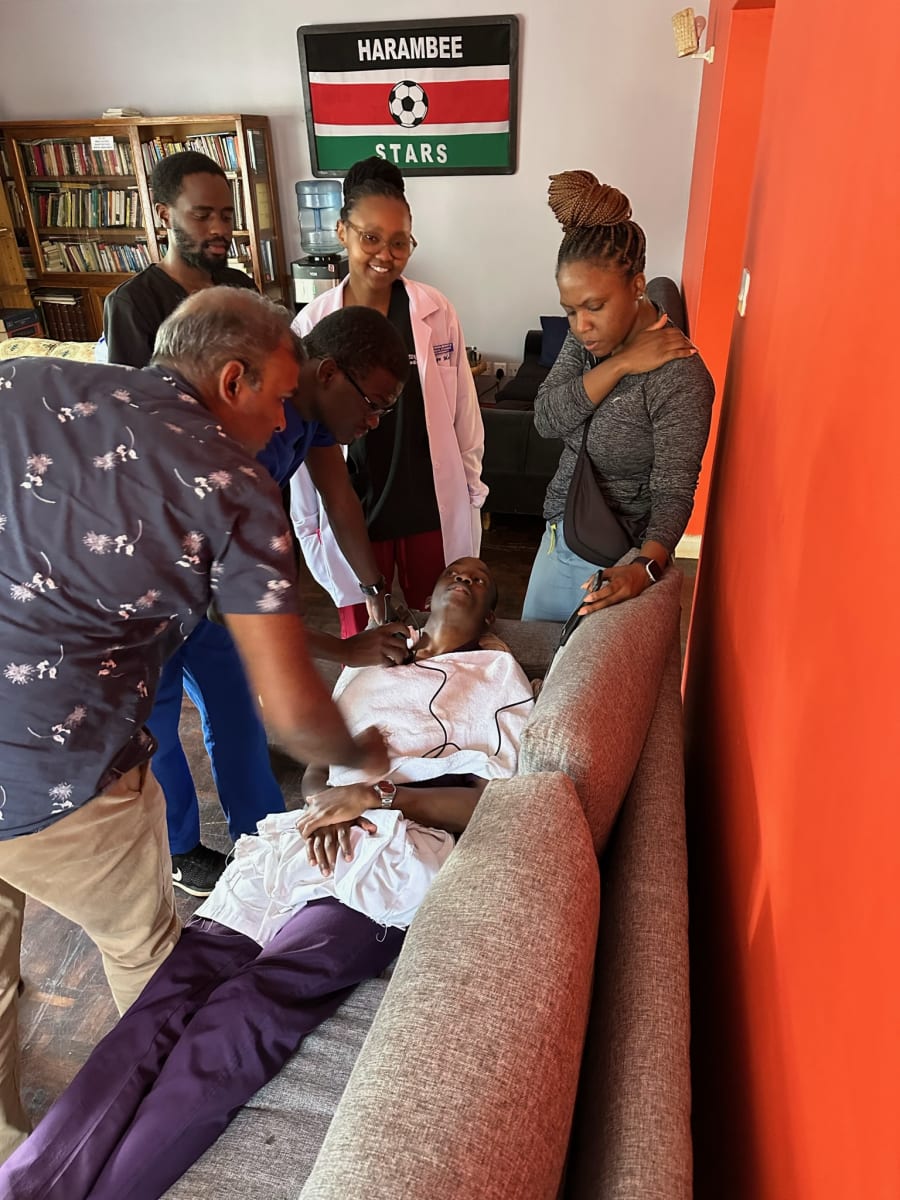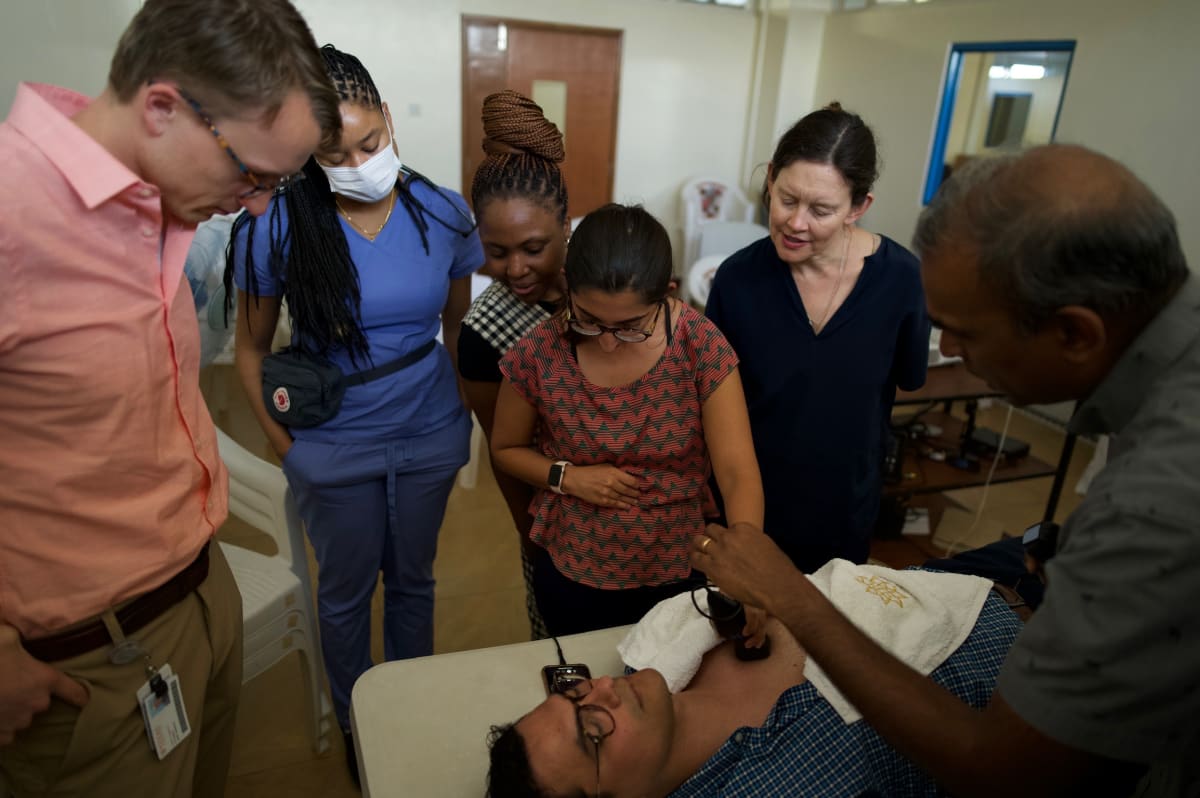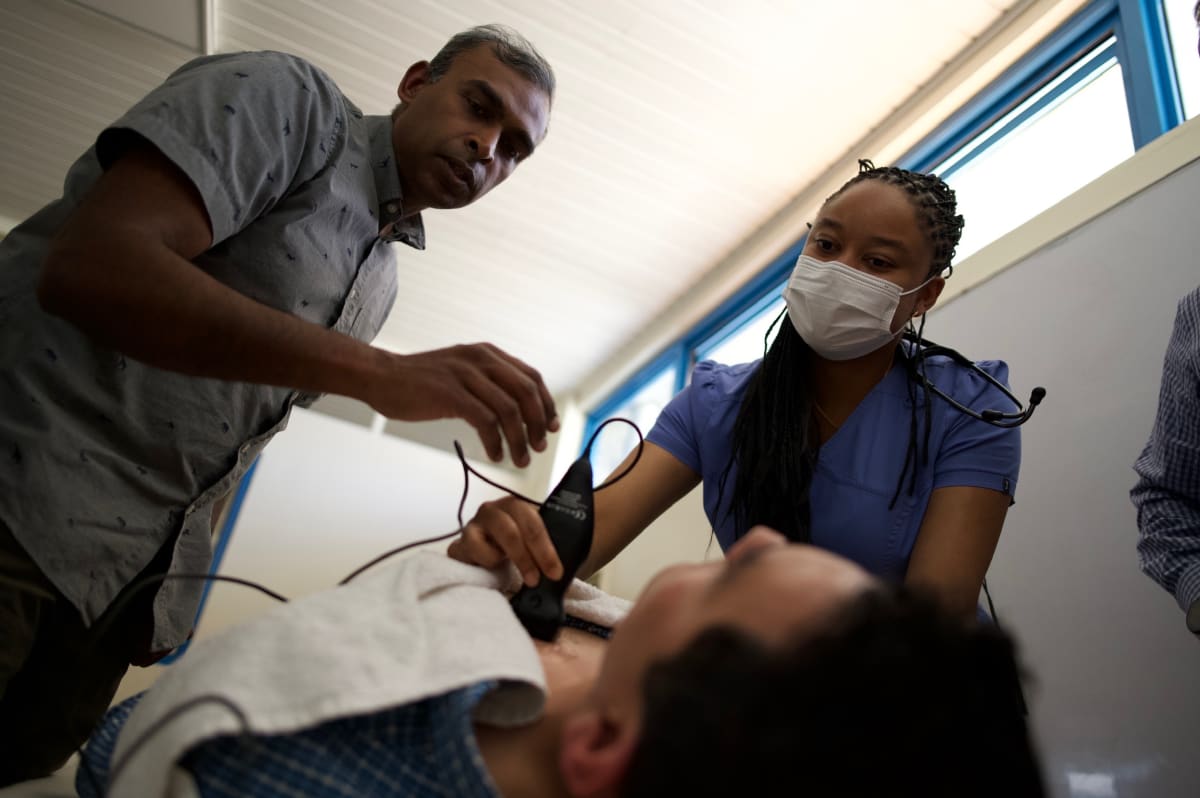I, along with two of my colleagues (who will be here in overlapping time frames to provide full coverage whilst our residents and students are here) are going to be traveling to Eldoret in Kenya through the AMPATH Kenya program. I will be providing clinical supervision and bedside teaching for US Internal Medicine and Pediatric residents, who will be providing direct medical care for patients at Moi Teaching and Referral Hospital (MTRH). We also have a group of upper level medical students who will be accompanying us. In addition to patient management, I will be teaching physical examination skills. I will also be providing didactic teaching in Inpatient management of adult and pediatric patients for both our trainees and trainees from Moi teaching hospital.
I will also be using and teaching point of care ultrasound (POCUS) technology for diagnosis / evaluation and procedures POCUS is an emerging tool for physicians and is of particular importance in resource limited locations.
1.Patients at Moi teaching hospital. This hospital serves as a tertiary care hospital for a substantial part of the western Kenya.
2.Trainees (US residents and medical students from Dell Medical School)
3. Kenyan trainees (resident physicians and medical students)
For our residents and medical students: My goals are
1. Our trainees see health care systems in another part of the world.
2. Exposure to their counterparts in trainin, exchange of ideas / knowledge (and hopefully long term professional relationships)
3. Improve physical examination skills
4. Be able to manage patients within any limitation of diagnostic or therapeutics that exist
5. Be aware of social determinants of medical care and how to navigate through this in a resource limited area
6. Exposure to conditions that they may not have seen due to differences in epidemiology
6. Become savvy with POCUS as a diagnostic and procedural tool
For our Kenyan residents and medical students - an exposure to current practices in the US
For our Kenyan colleagues: Exchange of ideas, approaches to medical diagnosis and care.










This was a trip from our institution to a referral hospital in western Kenya that also serves as a large training institution for both undergraduate and graduate medical education. We did a lot of physical examination teaching for Kenyan and Dell Medical School medical students and residents. Although we were unable to use point of care ultrasound on the wards (due to hospital regulations), we did teach learners on the principles of POCUS and to be comfortable with how to interpret images, why POCUS can be useful - especially in resource limited areas. Hopefully as local regulations change, this can be a useful diagnostic tool. Many thanks to the Dox Foundation for their help in making this happen! All of us appreciate this invaluable support for clinicians who like to make a difference in both their local and global communities. And for both us and our Kenyan colleagues to be able to share ideas and medical practice guidelines, it was an invaluable experience. Again, appreciate all that the Dox Foundation has been doing!